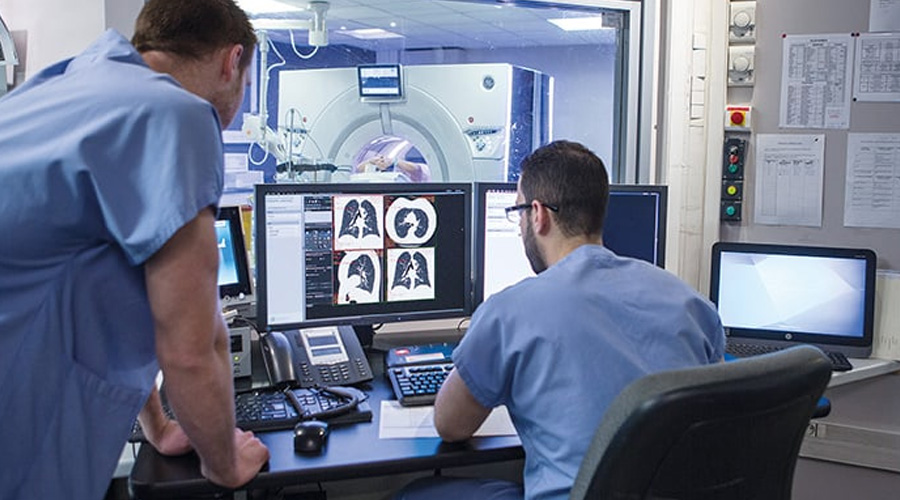
AI-Powered Medical Diagnosis: Revolutionizing HealthcareAI-Powered Medical Diagnosis: Revolutionizing Healthcare Artificial Intelligence (AI) is rapidly transforming the healthcare industry, with one of its most significant impacts being the development of AI-powered medical diagnosis tools. These tools have the potential to revolutionize healthcare by: 1. Enhanced Accuracy and Speed: AI algorithms can analyze vast amounts of medical data, including patient records, medical images, and genomic information. This allows them to identify patterns and anomalies that may be missed by human doctors, leading to more accurate and timely diagnoses. 2. Early Detection and Prevention: AI systems can detect early signs of diseases that may not yet be apparent to human doctors. This can help identify at-risk individuals and allow for timely intervention, potentially preventing the progression of serious conditions. 3. Personalized Treatment Planning: AI can analyze patient-specific data to tailor treatment plans. By considering factors such as genetic predisposition, medical history, and lifestyle, AI algorithms can recommend personalized treatments that are more likely to be effective. 4. Remote Diagnosis and Accessibility: AI-powered diagnostic tools can be used in remote areas or by individuals with limited access to healthcare providers. This expands healthcare coverage and improves accessibility for underserved populations. 5. Reduced Healthcare Costs: Early detection and personalized treatment planning through AI can reduce the need for unnecessary tests, procedures, and hospitalizations. This can lead to significant cost savings for patients and healthcare systems alike. Applications of AI in Medical Diagnosis: AI is being applied to various areas of medical diagnosis, including: * Radiology: AI algorithms can analyze medical images such as X-rays, CT scans, and MRIs to detect abnormalities and diagnose diseases like cancer, heart disease, and stroke. * Pathology: AI systems can examine tissue samples and pathology slides to identify cancer cells and diagnose other diseases. * Genetics: AI can analyze genetic data to identify genetic mutations and predict the risk of developing inherited diseases. * Ophthalmology: AI algorithms can diagnose eye diseases such as diabetic retinopathy and glaucoma by analyzing retinal images. * Cardiology: AI systems can monitor heart rhythm and detect arrhythmias, potentially preventing heart attacks and strokes. Challenges and Future Directions: While AI-powered medical diagnosis offers tremendous potential, there are challenges that need to be addressed, such as: * Data security and privacy concerns * Ethical considerations in using AI for decision-making * Validation and standardization of AI algorithms * Continuous improvement and adaptation to new medical knowledge Despite these challenges, AI is poised to continue revolutionizing healthcare through its ability to improve accuracy, speed, and accessibility of medical diagnoses. As AI algorithms continue to advance, we can expect even greater benefits in the future, leading to better health outcomes and a more efficient and equitable healthcare system.
Posted inNews